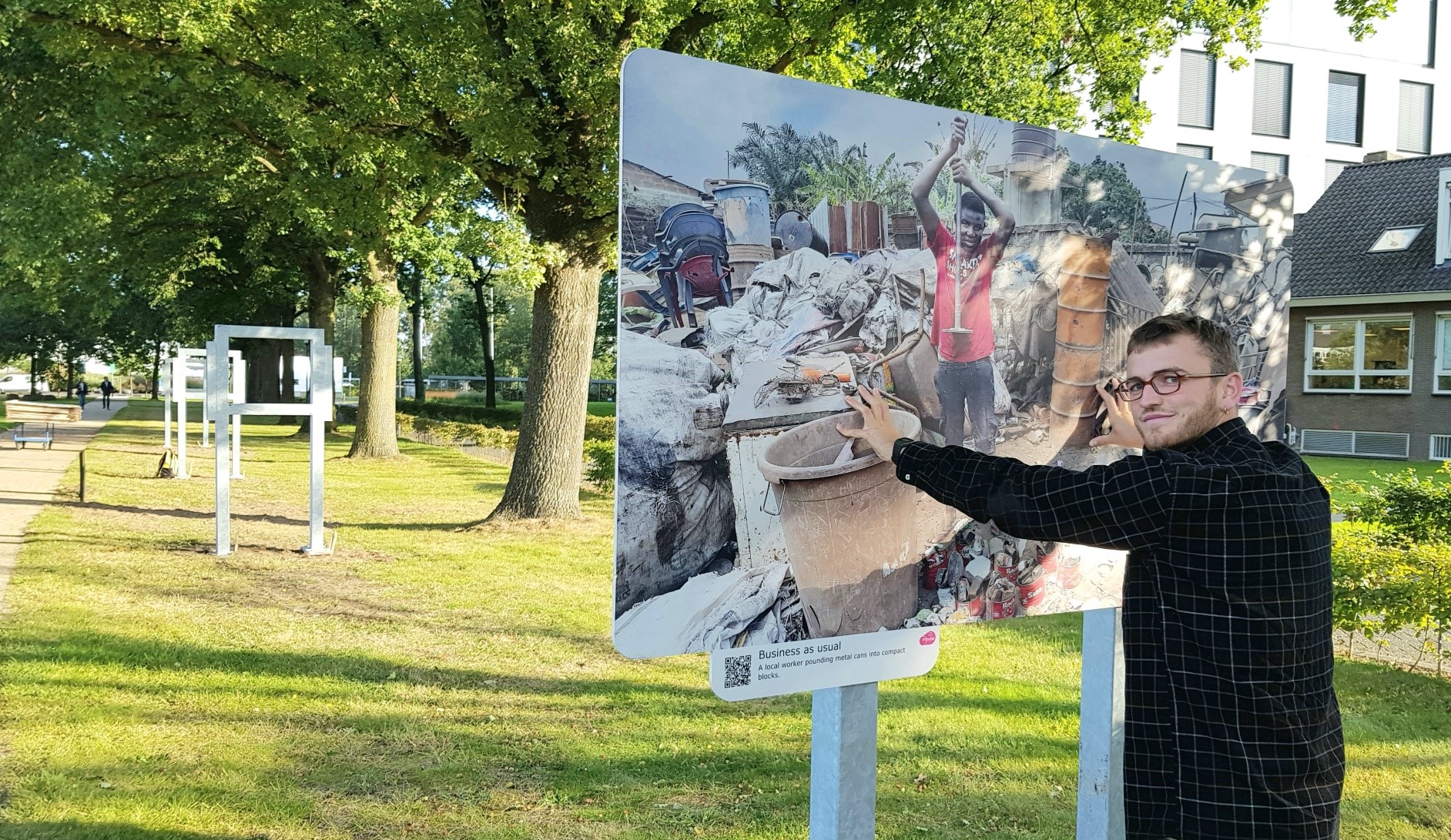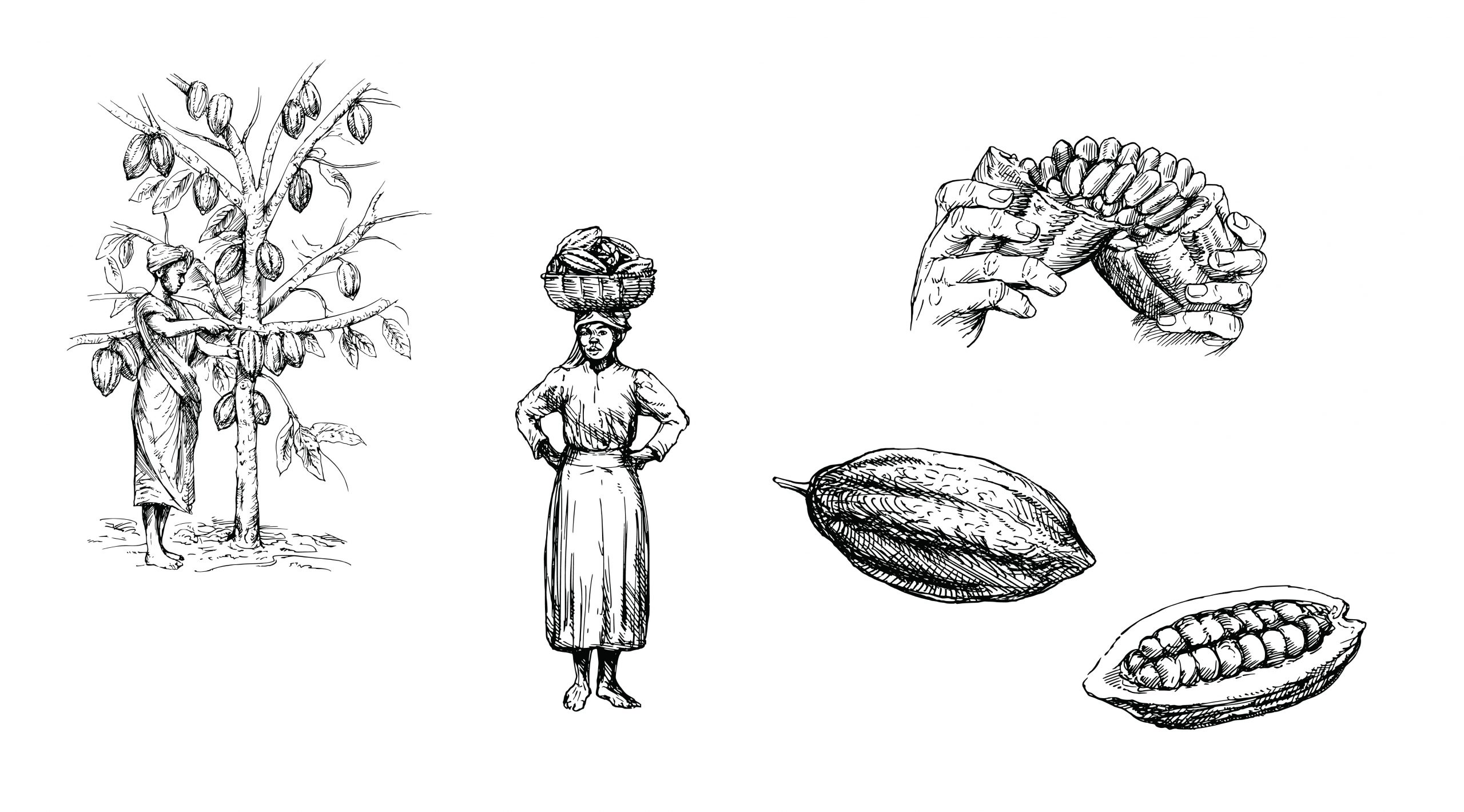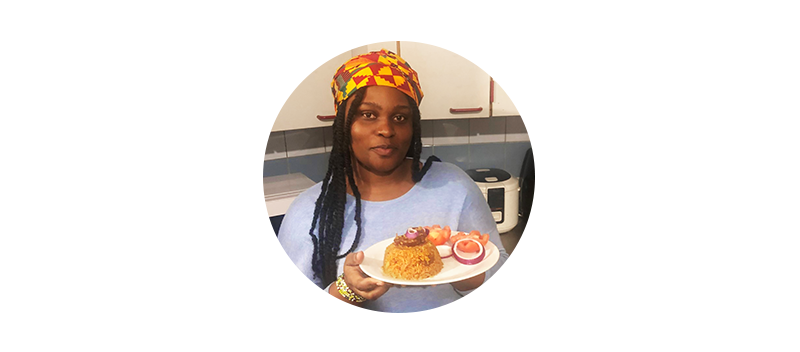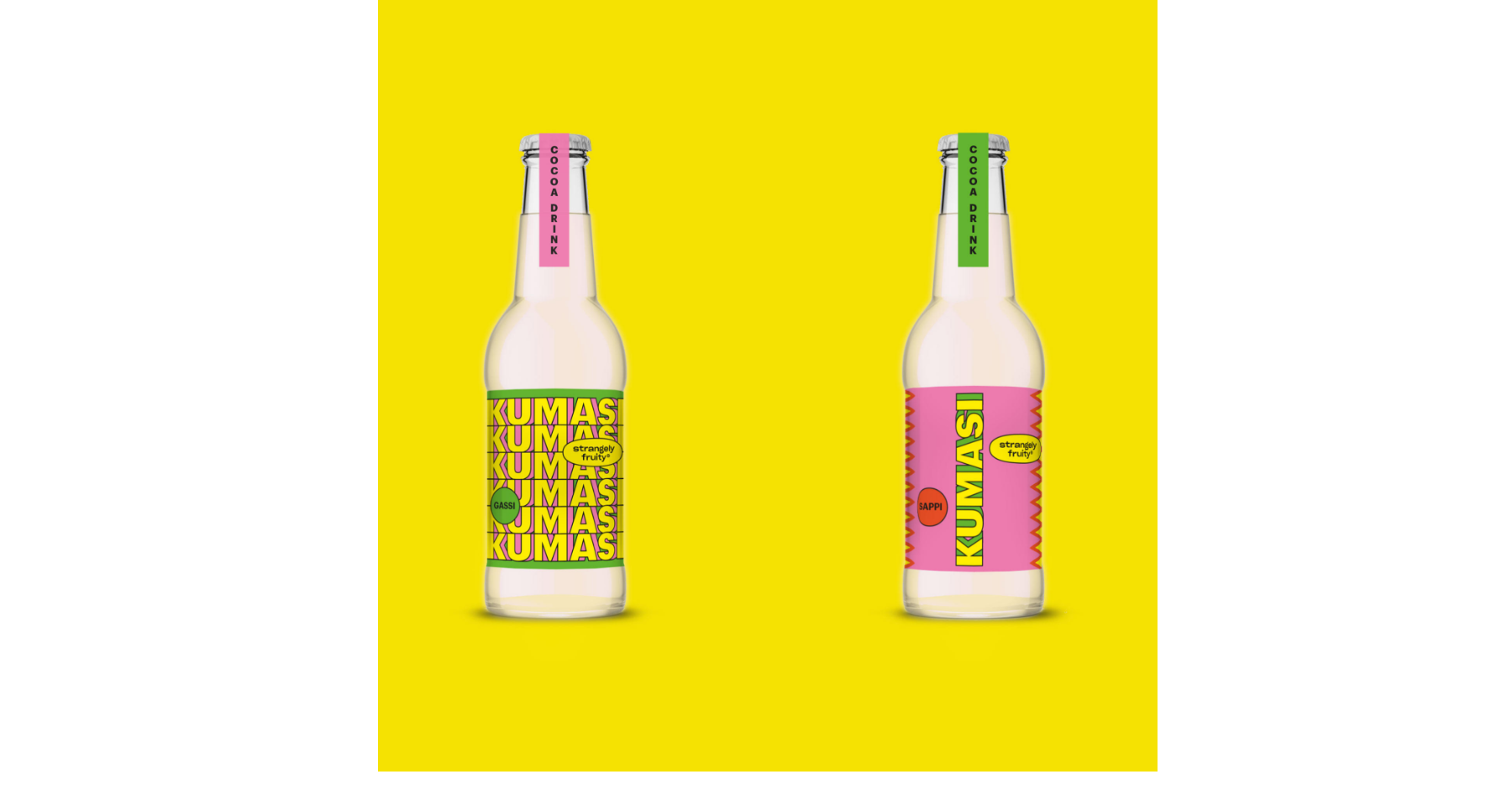Jurrian Veldhuizen (25) obtained his master’s in International Development Studies at WUR in February. Now, he returns to the campus with a photo exhibition on his thesis research on the Ghanese informal waste industry. The exhibit is set up in the new outdoor expo near Impulse, where twenty photographs measuring 2 x 1 metres tell a story.
‘One-and-a-half years ago, I studied the different ways in which the inhabitants of Kumasi, Ghana, deal with plastic waste’, Veldhuizen explains. ‘When I found myself atop one of West Africa’s largest landfills, I thought: people need to see this.’ He used his camera to bring the story of the waste and those who work with it to life.
Out of Ghana’s population of thirty million, one million works in the waste industry
Jurrian Veldhuizen, alumnus International Development Studies
‘I had two goals’, he explains. ‘To confront people with the enormous amount of waste we produce every day, and to show the world behind the garbage bin. That world is much larger than the bag of rubbish you toss into the bin. My exhibition tells that story.’ In addition to the pictures that already speak for themselves, a QR-code with every photograph leads to a web page with additional information.
Recycling industry
‘Out of Ghana’s population of thirty million, one million works in the waste industry’, Veldhuizen states. ‘By joining them in their work on the garbage trucks, picking garbage in the landfill and sorting, shredding and washing garbage in the workshops, I got to know the informal waste industry. The people I photographed and interviewed trusted me because I joined them in their work.
I would love to expose many more hidden worlds—the one behind WUR’s waste, to begin with.
‘Thus, I entered a world that remains hidden from most people’, Veldhuizen continues. ‘The story that emerged follows the plastic from the landfill to the shredded product that is ready to be melted into something new.’
Opportunity
Veldhuizen’s first exhibition whets this thirst for more. ‘This is the start of my freelance career. I would love to expose many more hidden worlds. The one behind the waste WUR produces annually. I hope people of WUR appreciate this exhibition and allow me the opportunity to make that a reality.’

 Photo Jurrian Veldhuizen
Photo Jurrian Veldhuizen 


This photo exhibition has generated a lot of ethical controversies, violations of ethical considerations and cultural misrepresentations and it is on that note that the United Community of African Students (UCAS) demanded an immediate pull-down of the photo exhibition and destruction of all the images. The same is applicable with all the social media platforms where the photos are published (LinkedIn, Facebook, Twitter, Resource Online, Instagram etc.) Under the EU GDPR, Jurrian should remove the advertisement on the sale of African images from his website since he does not have any consent from his data subjects to do so. The sale of data is a fraud, and this breaches humanitarian, journalistic, and research principles.
The story posted here is in complete disagreement with the story of his exhibition. Here he talks about exposing waste problems in Ghana, while his exhibition says other wise. These are conflicting stories. Ethical concerns, misrepresentation and monetarization concerns have been raised with his exhibition. Therefore we UCAS members will make sure these issues are not covered up, and we seek proper actions from the university to be taken to address our concerns.